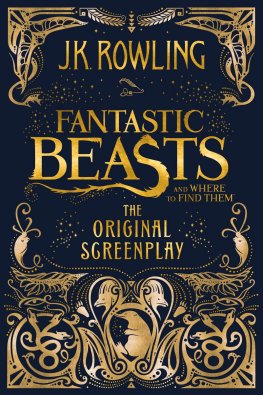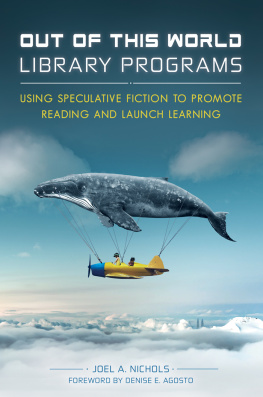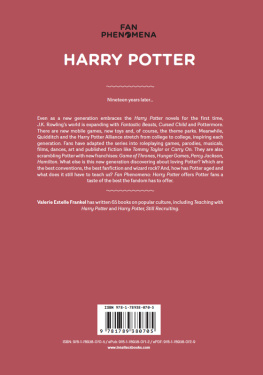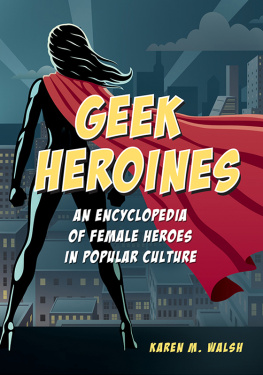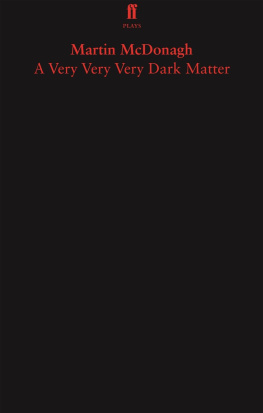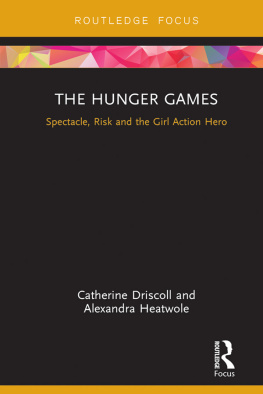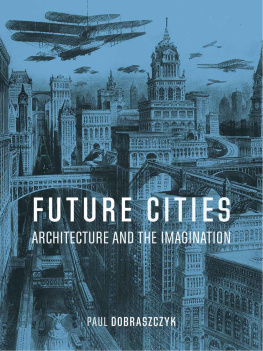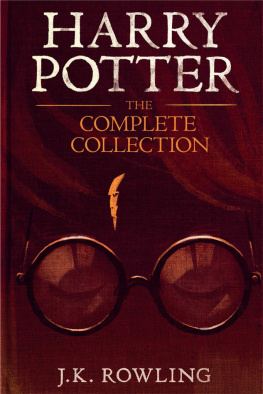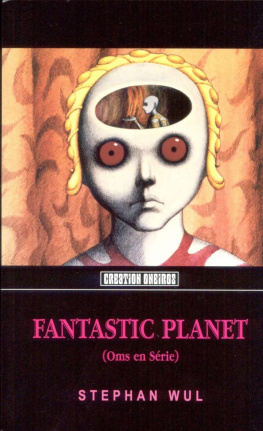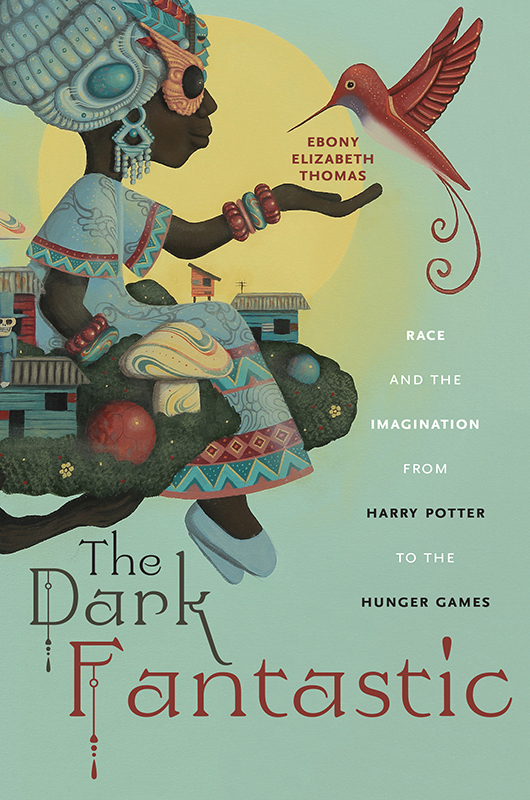
The Dark Fantastic
The Dark Fantastic
Race and the Imagination from Harry Potter to the Hunger Games
Ebony Elizabeth Thomas

NEW YORK UNIVERSITY PRESS
New York
NEW YORK UNIVERSITY PRESS
New York
www.nyupress.org
2019 by New York University
All rights reserved
References to Internet websites (URLs) were accurate at the time of writing. Neither the author nor New York University Press is responsible for URLs that may have expired or changed since the manuscript was prepared.
Library of Congress Cataloging-in-Publication Data
Names: Thomas, Ebony Elizabeth, 1977 author.
Title: The dark fantastic : race and the imagination from Harry Potter to the hunger games / Ebony Elizabeth Thomas.
Description: New York : New York University Press, [2019] | Series: Postmillennial pop | Includes bibliographical references and index.
Identifiers: LCCN 2018042917 | ISBN 9781479800650 (cl : alk. paper)
Subjects: LCSH: Fantasy fiction, AmericanHistory and criticismTheory, etc. | Fantasy fiction, EnglishHistory and criticismTheory, etc. | African AmericansIntellectual life. | Literature and race. | Storytelling in mass media.
Classification: LCC PS374.F27 T475 2019 | DDC 813/.8766093552dc23
LC record available at https://lccn.loc.gov/2018042917
New York University Press books are printed on acid-free paper, and their binding materials are chosen for strength and durability. We strive to use environmentally responsible suppliers and materials to the greatest extent possible in publishing our books.
Manufactured in the United States of America
10 9 8 7 6 5 4 3 2 1
Also available as an ebook
Dedicated to Jalen, Daija, Alexzis, Kellen, Danielle, Jr., and Dylon
And all the children of tomorrow
who deserve fantastic worlds
endarkened and whole.
Contents
The Dark Fantastic: Race and the Imagination Gap
There is no magic.
This statement, perhaps most famously attributed to Harry Potters uncle Vernon Dursley, is also something that my mother has said to me since I was a child. Magic has long been under siege in my culture, social class, and hometown. The eldest daughter of an African American, working-class, Detroit family, I was born in the late 1970s just as the fires of the Civil Rights era were smoldering to ashes. I was warned against walking through metaphoric looking glasses, trained to be suspicious of magic rings, and assured that no gallant princes were ever coming to my rescue. The existential concerns of our family, neighbors, and city left little room for Neverlands, Middle-Earths, or Fantasias. In order to survive, I had to face reality.
My life has been intentionally constructed to prove my mothers words wrong. Among my earliest memories are snapshots taken from behind the spectacles of my younger self, seeking desperately for any traces of magic in the real world, even when magic did not seem to search foror take much notice ofme. Secret passageways remained closed off to me, but I continued to dream. Books were my ticket to the realm of the imagination; reading, a welcomed escape. Although I grew up in urban America during the height of the crack epidemic of the 1980s and 1990s, my heart, mind, and soul were almost always somewhere else. In the realm of the fantastic, I found meaning, safety, catharsisand hope. Though it eluded me, I needed magic.
My emerging critical consciousness as a reader, creative writer, and fangirl were soon on a collision course with my experiences as a teacher, scholar, and critic. The promise from Disneys classic Cinderella film, In dreams you will lose your heartache... whatever you wish for, you keep, was obscured by the real conditions of my existence as a young Black woman in early twenty-first century America. It was also obscured in the lives of my family and friends, and in the lives of many children and adults whom I knew. Perhaps this is why some of my students, family members, and friends have been especially ambivalent about speculative fiction. They prefer to read and view stories that are, in their words, true to life or keeping it real. Although there are many exceptions to this conventional wisdom about Black readers and viewers genre preferencesthe recent Black Panther phenomenon for oneI have been told throughout my lifetime that stories like the ones I preferred were for White people.
When people of color seek passageways into the fantastic, we have often discovered that the doors are barred. Even the very act of dreaming of worlds-that-never-were can be challenging when the known world does not provide many liberating spaces. A poignant example comes from Marlon Riggss Emmy-award winning 1986 documentary about racial representation in media, Ethnic Notions. Toward the end of the film, there is a haunting sequence in which Dr. Martin Luther Kings I Have a Dream speech is interposed over Ethel Waterss ethereal performance of Darkies Never Dream in the 1943 movie Cabin in the Sky. While others have read her performance through the lens of minstrelsy, for me, it was almost as if Ethels haunting melody was audaciously pointing to the possibility of the endarkened future of Kings March on Washington, and beyond it to our timea time when all people would ostensibly have access to the pleasures of dreaming.
But are the cartographies of dreams truly universal? When we dream inside the storied worlds of printed and digital books, fanfiction, fanart, fan videos, television shows, movies, comics, graphic novels, online fandom communities, and fan cons, do those worlds offer all kinds of people escape from the world as we know it? Could they offer catharsis for some of our most pressing human problems? Might they help us collectively imagine our world anew?
This conversation is even more critical in todays social media environment, described by media theorist Henry Jenkins as convergenceculture, in which traditional and new media forms thrive together. Since todays young people are as likely to be engaged in virtual social worlds as they are in face-to-face communication, the ways that stories are told and retold in convergence culture are more significant than ever for shaping the collective consciousness. As Jenkins notes:
Transmedia storytelling is the art of world making. To fully experience any fictional world, consumers must assume the role of hunters and gatherers, chasing down bits of the story across media channels, comparing notes with each other via online discussion groups, and collaborating to ensure that everyone who invests time and effort will come away with a richer entertainment experience.
Todays teens and young adults are increasingly using new forms of communication to read and tell stories. They engage in textual and visual production that is collaborative, shared in what has been characterized as environments of digital intimacy.
While digitally networked culture affords more scope for the imaginations of young people, this is not universally the case. Although a sense of the infinite possibilities inherent in fantasy, science fiction, comics, and other imaginative genres draws children, teens, and adults from all backgrounds to speculative fiction, not all people are equally represented in these genres. This problem of representation has created discord in the collective imagination. As I describe later in this introduction, the dark fantastic is my attempt to understand that discord as it plays out in stories for young adults and in audience interactions with those stories. But before journeying into the dark, I first want to call attention to one of the most pressing problems in all genres of young adult literature, media, and culturea long-entrenched lack of diversityand its implications for young people who arent mirrored in those texts.
Next page

